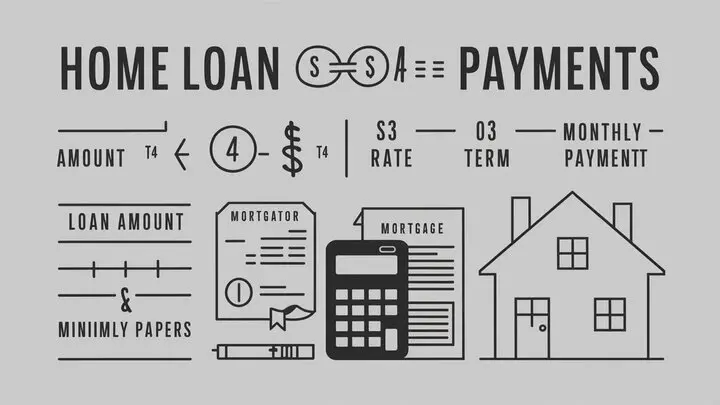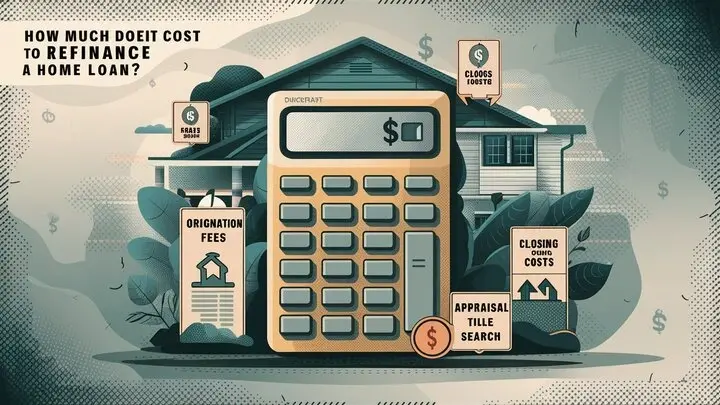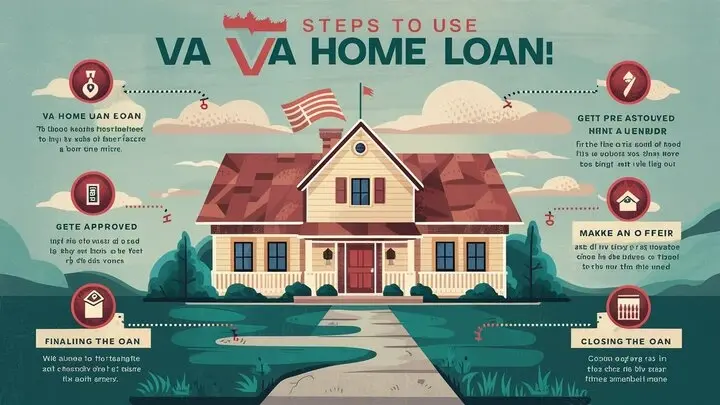-
Posted on: 23 Aug 2024

-
If you are a homeowner and have any equity in your home, you may be thinking of accessing your equity to get some cash for issues such as home repairs, paying your bills, or any other pressing need. It is a secured loan where homeowners can borrow money against the value of their homes for a relatively lower interest rate compared to most other loans. Below is a roadmap on how to begin with the home equity loan process.
How to Find Out Whether You Have Enough Home Equity
The initial procedure that has to be taken before applying for a home equity loan is to find out the amount of home equity possessed by the individual. These funds are derived by deducting the balance of your loan from the current market price of the house, also known as home equity. It is customary for lenders to offer up to 85 percent of your total home equity through a home equity loan or home equity line of credit. In other words, if for instance your home is worth 400,000 and you still have an outstanding balance of 200,000 on your mortgage, your home equity will be 200,000. So if that is so you may be eligible to receive a home equity loan of up to 170,000.
Check Your Credit Score
Similar to other large loan applications, home equity lenders will look at the credit score and report to assess the creditworthiness of the borrower and the terms of the loan that will be offered. Before applying for a credit card it is advisable to check the credit report with all three major credit bureaus and fix any mistake that may be found in the report. To have the best home equity loan rates make sure you have raised your credit score as far as it is possible is concerned. If your credit score is above 700 you will be in a very favorable position to secure an approval.
A Home Equity Loan and Line of Credit: Which to Choose
Two main options exist for borrowing against home equity: a home equity loan or a home equity line of credit (HELOC), for short. Unlike a home equity line of credit, a home equity loan is a lump-sum loan and you will pay a fixed monthly amount and interest, which is also fixed for a specific period between 5 to 30 years. A HELOC is structured closer to a credit card, allowing you to borrow money up to a specific limit and only take what you need when you need it. While the interest rates of HELOC are initially lower than those of home equity loans, they are adjustable and therefore your payments for the loan will change in the future. Check the advantages and disadvantages of each option depending on how much money you are willing to spend.
Find Out How Much You Are Required to Borrow
When deciding how much to borrow against the equity in your home, be very cautious. Home equity loans and home equity lines of credit enable one to borrow up to 85 percent of total home equity but should not borrow to their total capabilities. This means, do not be unrealistic as to the expenses you want to fund and the monthly repayments you are willing to make. You should find out from the lenders what payment schedules are available at different loan tiers by getting prequalified. Also, one should not use up all their equity to avoid a situation where they will need money in other emergencies.
Compare Several Lenders – Save Money
The interest rates, fees, and terms of home equity loans could also differ across lenders and therefore, it is advisable to compare the available options with various banks and other financial institutions. To apply with the lenders and compare the quotes, you should apply with at least 3 to 5 lenders to obtain the best deal. Sometimes online lenders are even able to provide more favorable interest rates compared to physical branches of banks. When performing quick comparisons, remember to focus on APR rates, origination fees, and loan terms. Using third-party platforms such as LendingTree helps you quickly compare loans with tailored rates.
Identify Which Rebate Plan is Most Suitable
Home equity loans usually come with various payment options such as fixed-rate loans that have equal periodic payments, interest-only HELOCs where you only pay the interest charges for the initial period of 5-10 years, and fully amortized loans where you pay the interest plus a portion of the principal amount each month. Evaluate the amount you can afford and your financial objectives to determine which of the types of repayment enables you to meet the new loan obligations every month. Interest-only HELOCs help to keep payments relatively low in the early years but the full loan balance is due later so you should save money for the future repayment of the principal.
Collect all Necessary Papers and Documents for Application
To apply for a home equity loan, most lenders require the following documents:
-Proof of income in the form of recent pay stubs to indicate your ability to pay the agreed amount. -This is in addition to copies of the W-2 tax forms of the company for the last two years. -Stock, bond, and investment account statements to prove your wealth. -Your latest home mortgage statement -A current home appraisal or inspection report if you do not have 20 percent equity already -Proof of homeowners insurance -Photo ID
You should prepare these documents beforehand to make the application process faster, thus getting approved quickly.
Estimate Closing Costs
If you get a home equity loan, you will need to spend some money on closing costs and fees that come with finalizing a home equity loan, which can be from 2% to 5% of the loan amount. Some of them are; application costs, appraisal costs, attorney costs, title examination, credit reports, insurance, taxes, recording costs, and many others. Due to this, borrowers should request their lenders to explain the various fees they would be charged hence make the necessary preparations for closing costs. In some circumstances, they can be added to the total loan amount borrowed by the individual.
Read All the Terms and Conditions of the Loan Closely
Before you agree to a home equity loan, ensure that you go through the detailed loan terms and conditions that are given on the dotted line. Loan agreements are comprehensive but usually contain sections on the interest rate and APR, the monthly installments, the total costs, the draw period in the case of HELOCs, the LTV ratio, tax consequences if any, fees for overdue payments, the closing period, provisions for early repayment, and any other provisions that affect the cost and terms of borrowing against your home equity before the conclusion of the loan agreement.
Keep Your Homeowners Insurance and Payments Up to Date
After closing the home equity loan, it is essential to retain the home insurance coverage on the property and to continue paying all new loan installments together with the monthly mortgage consistently and on time. Defaulting on a home equity loan or failing to make the agreed monthly payments exposes your home to foreclosure since the loan is secured by your house.
Banking: Should I Refinance or Pay Off My Loan Early?
It’s possible to refinance your home equity in the future or to pay off the loan as soon as possible to minimize interest charges or borrow more equity for additional loans if necessary. Prequalify all other terms associated with prepayment of a home equity loan without a prepayment penalty based on the type of loan.
As much as getting a home equity loan involves doing some research and preparation, it allows accessing borrowed funds from the property’s equity, which is well-earned. It goes to show that being an informed and smart borrower can go a long way. Here are some guidelines to follow, and one might want to seek guidance from a financial planner or housing counselor:
Struggling with bad credit? Dial (888) 803-7889 for expert credit repair assistance!










